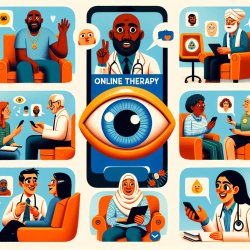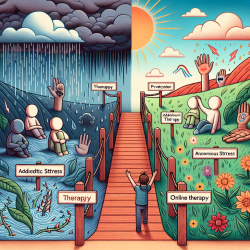As practitioners dedicated to improving the mental health and developmental outcomes of children, it is crucial to stay informed about the latest research and implement data-driven strategies. A recent systematic review titled The link between social communication and mental health from childhood to young adulthood: A systematic review provides valuable insights into how social communication (SC) skills are linked to mental health outcomes. Here’s how you can leverage these findings to enhance your practice.
Understanding the Connection
Social communication (SC) involves the use and interpretation of verbal and non-verbal signals to interact effectively with others. This includes conversational skills, making requests, and understanding social cues. The systematic review highlights significant associations between SC skills and mental health outcomes, demonstrating that SC difficulties can predict mental health problems such as anxiety, depression, and behavioral issues.
Key Findings from the Research
- Children with SC difficulties are at a higher risk of developing mental health problems, including internalizing issues (e.g., anxiety, depression) and externalizing issues (e.g., conduct problems, hyperactivity).
- Longitudinal studies show that SC difficulties in early childhood can predict persistent mental health issues into adolescence and young adulthood.
- Special populations, such as children with ADHD or those from socially disadvantaged backgrounds, show higher rates of SC difficulties, which correlate with worse mental health outcomes.
Implementing Research Outcomes in Practice
Given the strong evidence linking SC skills to mental health, it is essential to integrate SC assessments and interventions into your practice. Here are some actionable steps:
- Early Screening: Implement routine SC assessments using standardized tools such as the Children’s Communication Checklist (CCC-2) or the Social Communication Questionnaire (SCQ) to identify children at risk.
- Targeted Interventions: Develop and apply intervention programs that focus on enhancing SC skills. Techniques such as role-playing, social stories, and peer-mediated interventions can be effective.
- Multidisciplinary Approach: Collaborate with other professionals, including psychologists, educators, and occupational therapists, to create comprehensive care plans that address both SC and mental health needs.
- Parental Involvement: Educate and involve parents in the intervention process. Providing them with strategies to support their child’s SC development at home can lead to better outcomes.
Encouraging Further Research
While the existing research provides a solid foundation, there is a need for more studies to explore the dynamic interaction between SC skills and mental health across diverse populations. Encouraging further research in this area can help refine intervention strategies and improve outcomes for children.
Conclusion
The systematic review underscores the importance of SC skills in shaping mental health trajectories. By incorporating SC assessments and interventions into your practice, you can make a significant impact on the mental health and overall development of the children you serve.
To read the original research paper, please follow this link: The link between social communication and mental health from childhood to young adulthood: A systematic review.










